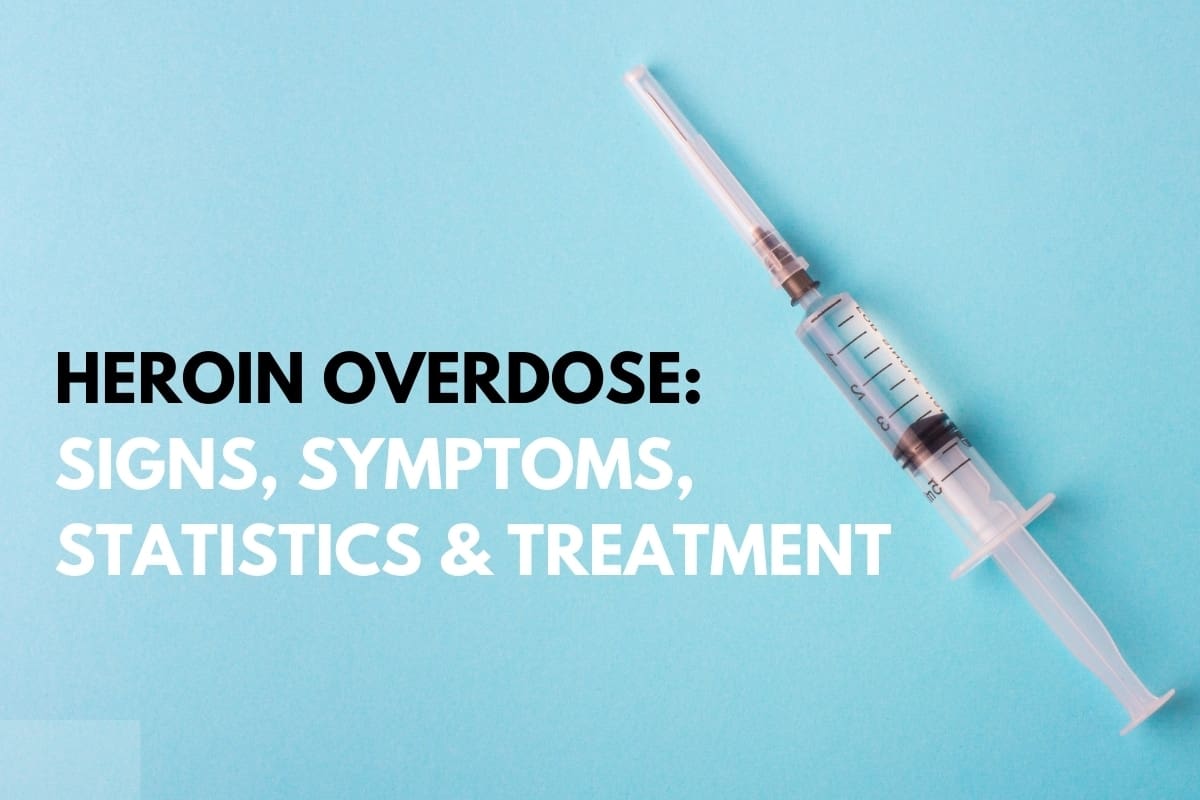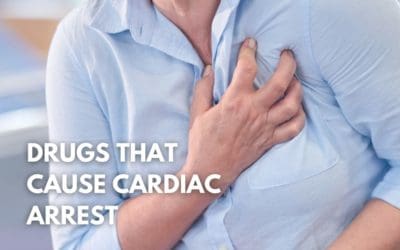Heroin overdose is a significant player in the country’s ongoing opioid-related fatalities. In 2019, the number of deaths involving a heroin overdose topped 14,000–that’s nearly 5 times higher than what it was in 2010! Being able to recognize the signs and symptoms of a heroin overdose is one of the best means of preventing these tragic statistics.
Heroin Overdose Statistics
To fully grasp how deadly heroin use can be, consider these statistics:
- Over 115,000 Americans have died from a heroin-related overdose between 1999 and 2018
- Heroin was the second leading cause of overdose deaths in 2019 but the first between 2012 and 2015
- There are about half a million deaths caused by drug use—70% are related to opioids and 30% are from an overdose
- Most fatal heroin overdoses occur between 25-34-year-olds
- The specific symptom that is the most common cause of a heroin death is respiratory failure
- The death rate is nearly 3 times higher for males than for females
These numbers paint a frightening picture of how powerful heroin’s grasp can be. Another shocking takeaway is just how widespread heroin use is. The previous narrative surrounding heroin use is that it was restricted to the poorer, inner cities. Nowadays, heroin use has expanded to urban, suburban, and rural areas with users of all socioeconomic classes.
Signs & Symptoms of Heroin Overdose
- Slow, shallow breathing (might include gasping)
- Pale skin
- Bluish tint to lips and fingertips
- Slurring words
- Pinpoint pupils
- Discolored tongue
- Weak pulse
- Nausea or vomiting
- Nodding off (slipping in and out of consciousness)
- Unresponsive while unconscious
- Coma
The majority of heroin overdose symptoms stem from heroin’s effects as a central nervous system (CNS) depressant. In addition to triggering abnormally large amounts of dopamine to be released into the body, heroin slows CNS activity which includes cardiovascular, respiratory, and gastrointestinal functions. These effects are intensified when larger quantities are taken.
The most common symptoms of a heroin overdose aren’t always the most obvious on their own. Often, it is the occurrence of multiple symptoms at once that is the most helpful. Other, more serious side effects are caused by a lack of oxygen (asphyxiation) and are usually much more apparent. If present, seek medical intervention as soon as possible.
Heroin Overdose Treatment
Fortunately, there are medications that can reverse a heroin overdose and prevent it from being fatal. Naloxone is an opioid antagonist which removes heroin from opioid-receptors. This almost immediately enables respiratory functions to resume, which are typically the cause of most overdose symptoms.
This medication comes in two forms: an injectable liquid or an inhalant. It is only effective if it is administered while an overdose is occurring. Trying to use it preemptively will yield no benefit to the user. Unfortunately, if the brain was deprived of oxygen for an extended period of time, there can be permanent damage that even naloxone cannot fix.
Get Help for Heroin Addiction Before It’s Too Late
Using heroin is a ticking time bomb that will detonate without warning. No matter how safe or in control you might feel, there is no safe way to use it. The best means to prevent a heroin-related tragedy is to stop using it. It can be difficult to break this cycle on your own, which is where addiction treatment centers can help.
The first step to take is heroin detox; here you’ll receive medical aid to get through withdrawal symptoms. From there, these centers can provide both medical and therapeutic help in managing cravings. Heroin addiction treatment can not only save your life, but you help you regain control so that you can live it to the fullest.
Sources:
https://www.who.int/news-room/fact-sheets/detail/opioid-overdose
https://www.medscape.com/answers/166464-159461/what-are-the-mortality-rates-of-heroin-toxicity
https://www.drugabuse.gov/drug-topics/trends-statistics/overdose-death-rates


































